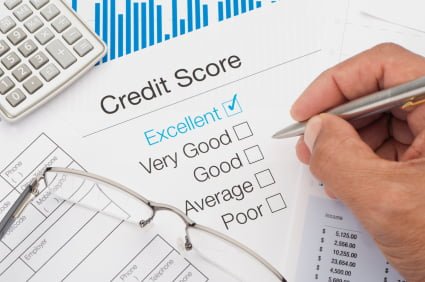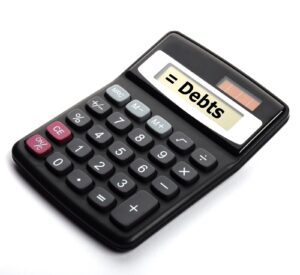A credit score is simply a three-digit number that summarizes your overall credit standing and tells creditors how likely you are to either repay a debt or default on it.
A credit score is calculated based on the underlying information that is contained in your credit reports.
But a credit score is not automatically included in credit reports. You generally have to pay for a credit score, whereas you’re legally entitled to get your credit reports free of charge every year.
There are a few different consumer credit scores that you as a consumer should mainly be concerned about. They are:
-
The FICO credit score
-
The Experian Plus score
-
The VantageScore
Your FICO Score
Your FICO credit score is issued by the Fair Isaac Corporation. It is a separate entity and business that is not owned by any of the three credit bureaus.
Your FICO score can range between a low score of 300 points to a top score of 850 points.
FICO scores are the most popularly-used credit scores. Anyone that is considering loaning you money, leasing you equipment, or even considering extending you a job offer or renting an apartment to you will probably want to know your credit rating or what your FICO score is.
A low score of, let’s say 550, means that you probably will be denied the credit you want. A high score of perhaps 780 will greatly improve your chances of getting the credit you want. It’s that simple.
Here are details on what factors Fair Isaac uses to determine your FICO credit score.
Fair Isaac, through their myFICO.com website, also offers consumers a wide range of credit monitoring services which allow you to monitor your credit score for a fee. Personally, I’ve found credit monitoring to be invaluable in helping me to achieve Perfect Credit.
The Experian Plus Score
The Experian Plus is different from your FICO score. The Experian Plus Score, as the name suggests, is issued by the Experian credit bureau. Your Experian Plus score can range between 330 and 830 points.
If you pay all of your bills on time, don’t have any liens or judgements on any of your credit reports and if you have relatively low to zero balances on your credit cards, you will likely have a high Experian Plus score.
The reverse is true as well: if you have multiple late payments on your record, a lien, a bankruptcy, etc., chances are your credit score will be low.
The VantageScore
The VantageScore was introduced in 2006 and formed jointly by TransUnion, Equifax and Experian.
Even though the VantageScore was created by a mutual collaboration of the three national credit bureaus, VantageScore is owned by VantageScore Solutions, LLC which acts as a holding company to the intellectual property rights of VantageScore.
Without getting bogged down in all of the legal ownership, rights, etc…here is what you need to know about the VantageScore:
-
The VantageScore ranges from 501 to 990 points
-
VantageScore uses a familiar letter grade associated with five different ranges within the score.
-
“A” for scores between 900-990
-
“B” for scores between 800-899
-
“C” for scores between 700-799
-
“D” for scores between 600-699
-
“F” for scores 599 and below.
-
So how do you get everything? If you want your credit reports and credit scores, here is the short answer:
You have to get your credit reports and credit scores separately, and it’s fastest to do it online. Credit reports are available at no charge; credit scores you have to pay for, typically about $10 to $15 or so.
You can get each of your three credit reports from the credit bureaus for free – with no strings attached – by going to AnnualCreditReport.com.






